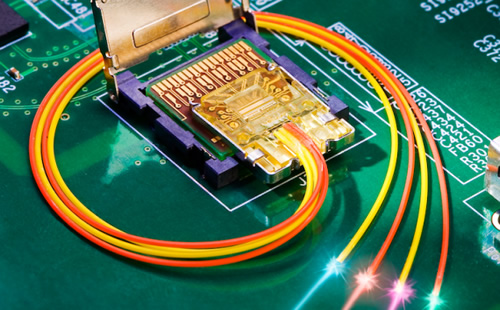Intel is greeting us with some good and bad news this week. In an interview with IDG News, the company’s executive vice president David Perlmutter said that Light Peak is ready to be implemented by device makers. But as rumored, its first implementation will use old copper wires for data transmission, instead of fiber optics, in order to save costs. "The copper came out very good, surprisingly better than what we thought," Perlmutter said.
The company would presumably still be able to hit its initial target of 10Gbps speeds using copper cabling which, according to Intel, will be more than adequate for the majority of user needs today. By comparison, the relatively new USB 3.0 protocol sports a maximum transfer rate of 4.8Gbps. That doesn’t mean that Intel isn’t working on a fiber optic connection. Eventually they will make the move to fiber optic cabling – with the potential of reaching up to 100Gbps transmission speeds after a few years – it’s just going to take longer for it to be implemented.

Permutter didn’t say which companies are the first supporters and when complete products will be shipped. Rumors have pointed at Apple and Sony as two of the main forces pushing Intel to get Light Peak out the door, so we’ll be looking forward to any announcements from them in the upcoming months.
https://www.techspot.com/news/41901-intel-light-peak-interconnect-is-ready-but-built-on-copper.html